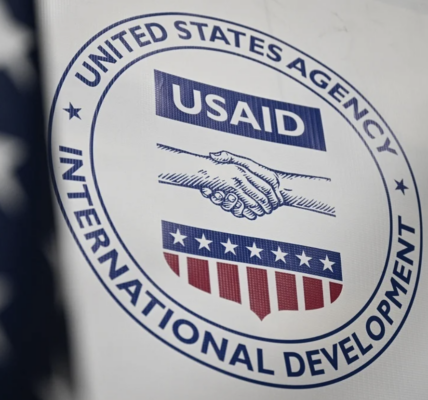Johns Hopkins University/photo courtesy
The Trump administration’s decision to reduce funding for USAID programs resulted in Johns Hopkins University firing over 2,000 employees. The budget reduction targets essential global health operations, including Indian HIV prevention strategies and Bangladesh diarrheal disease clinical trial work.
The Impact of USAID Cuts on Johns Hopkins
As a prominent scientific research organization, the university must discontinue essential projects throughout Baltimore City and worldwide because USAID stopped funding exceeding $800 million. This includes:
- 1,975 international job losses
- 247 U.S.-based layoffs
- Additional 107 furloughed employees (78 in the U.S. and 29 abroad)
Global Health Concerns
Johns Hopkins researchers warn that funding cuts could have dire consequences, particularly regarding global health.
- Since its foundation in 2019, the Accelerate program has conducted nearly 120,000 tests for HIV that resulted in 20,000 confirmed cases. These budget reductions will heighten the risk of HIV spreading while cutting down the number of children who receive medical care.
- The tuberculosis research efforts and the Bangladesh-based cholera clinical trial to stop outbreaks are being terminated. Studies predict that stopping these disease prevention programs will result in worldwide higher rates of infectious disease spread.
- The surveillance of worldwide diseases faces risks because experts predict USAID funding cuts will damage global disease-tracking operations. Dr. Judd Walson, the International Health Chair at Johns Hopkins, expressed his concern that we stand only a short journey away from facing major disease outbreaks in the United States.
Broader Implications for Higher Education
Other academic institutions, including Johns Hopkins University, experience difficulties in obtaining funding. Similar institutions such as Harvard, the University of Pennsylvania, and Notre Dame have implemented hiring suspension policies because of federal spending reductions. Trump administration decision-makers have chosen to withdraw $400 million in funding from Columbia University and $30 million from the University of Maine.
The administration investigates more than fifty universities regarding their Diversity, Equity, and Inclusion programming while working to eliminate these programs. The White House approved this move by declaring the elimination of “wasteful projects” and a need to support scientific investigations supporting administration principles.
Economic Ripple Effects
- The public health consequences of layoff staff members at Johns Hopkins Hospital will extend their damaging effects throughout Baltimore and other regions.
- Johns Hopkins operates as Maryland’s most significant private workplace and disbursed $5 billion in worker wages throughout 2022.
- Every year, Johns Hopkins University provides economic support worth more than $15 billion to the state.
Research experts predict that budget reductions will escalate economic turbulence in Baltimore and diminish Johns Hopkins University’s capabilities to perform additional scientific investigations.
Legal Challenges and Future Outlook
Johns Hopkins serves among the universities that have taken legal measures against the proposed National Institutes of Health grant limits introduced by the administration. A proposed federal regulation faces legal challenges because it would now enable Johns Hopkins to recover only 15% of indirect research expenses, which could result in a budget deficit of $200 million.
Photo courtesy
The future of essential public health programs remains uncertain because global health advocates and researchers continue their opposition to budget cuts. The executed decision produced ongoing effects on both global disease prevention efforts and the global role U.S. universities play in international health research fields.





